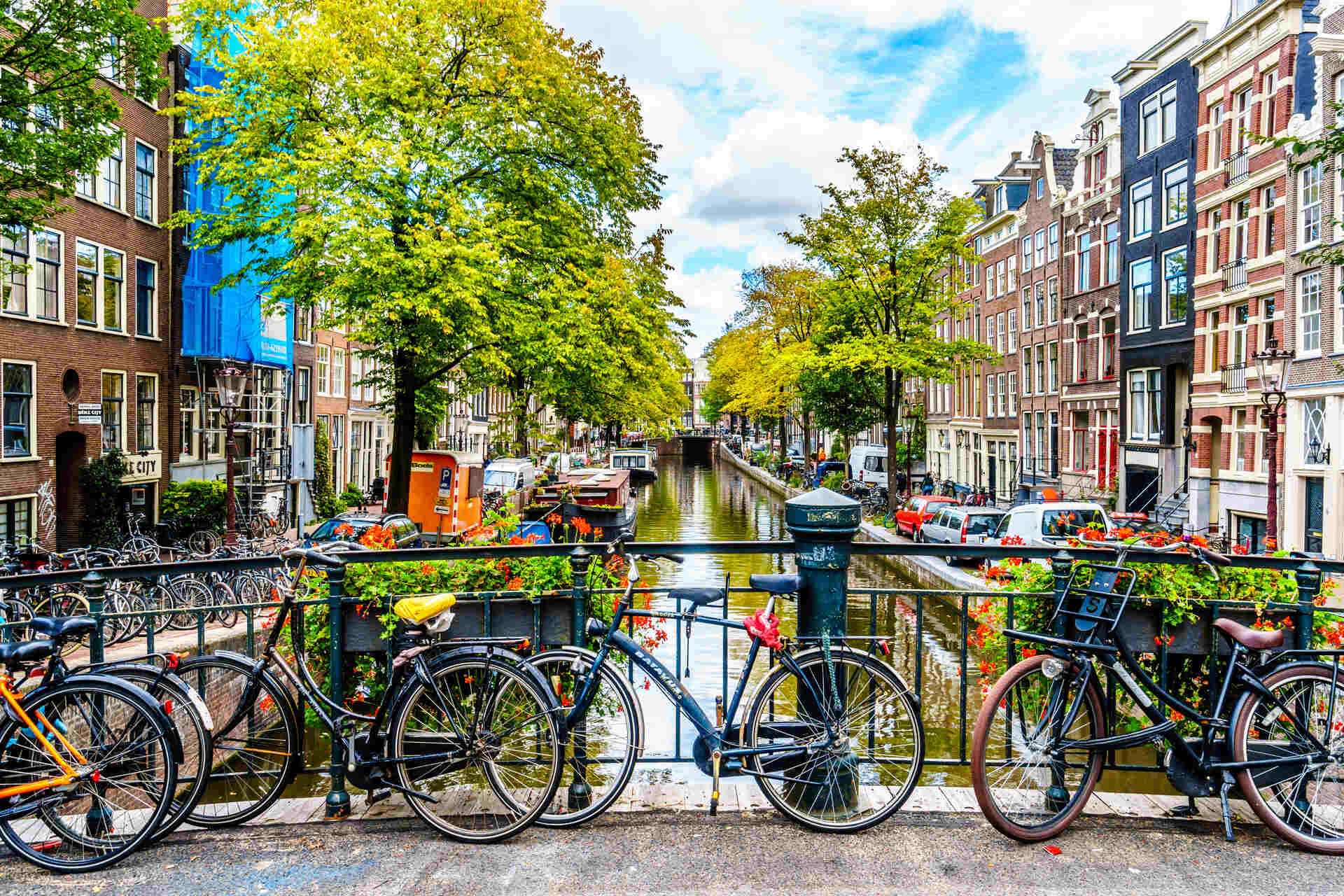

Relocating to a new country can be an exciting adventure, but it can also be intimidating. The thought of leaving behind familiarity and stepping into the unknown can cause a great deal of anxiety and fear. However, with the right mindset and approach, you can conquer the fear of moving and make your international relocation a smooth and positive experience.
Why International Moves Can Sometimes Trigger a Fear of Moving
Moving internationally can be particularly stressful due to a number of reasons. Firstly, relocating to a new country means leaving behind everything that is familiar to you, including your friends, family, and your community. This can lead to feelings of loneliness and isolation, which can trigger anxiety and fear. Additionally, language and cultural barriers can make it difficult to communicate effectively with locals and navigate daily life. This can make even the simplest tasks feel overwhelming and stressful.
Another factor that can contribute to fear and anxiety when moving abroad is the fear of the unknown. Everything from the climate to the food to the local customs and social norms can be vastly different from what you are used to. This can create a sense of uncertainty and unpredictability. The fear of failure or not being able to adapt to a new environment can also be a significant source of stress during international relocations.
Addressing Relocation Anxiety
One of the most important steps in addressing relocation anxiety is understanding and acknowledging your fears. It is normal to feel anxious and overwhelmed during a major life change such as an international move, and it is important to be gentle with yourself and give yourself permission to feel these emotions.
Start by identifying your specific fears and concerns related to the relocation. This could include fears of loneliness, uncertainty, or not being able to adapt to a new environment. Once you have identified them, try to understand the root causes of these fears. For example, if you are afraid of feeling lonely, you may want to explore ways to connect with other expats or locals in your new community.
Strategies for Coping With Anxiety
While there are many strategies that can help you cope with anxiety, sometimes it is necessary to seek professional help. A mental health professional can provide you with tools and techniques to manage your anxiety, and can also help you to address any underlying emotional issues that may be contributing to your problems.
Even if your anxiety is not severe, talking to a mental health professional can still be beneficial. They can help you develop coping strategies and provide you with a safe and supportive space to discuss your fears and concerns. If you’re not ready to take that step and go and talk to someone, you can also try online therapy on sites like BetterHelp.
Preparing Emotionally for an International Move
Preparing emotionally for moving overseas can help you to feel more confident and prepared as you embark on this new adventure. One key aspect of emotional preparation is setting realistic expectations for your new life. This includes being realistic about the challenges that you may face, such as culture shocks, as well as being open to the new experiences and opportunities that await you.
Another important aspect of emotional preparation is building a support network. This may include connecting with other expat communities or locals, as well as keeping in touch with loved ones back home. It can also be helpful to develop a self-care routine, which may include exercise, meditation, or other activities that help you to feel grounded and centered.
How to Deal With Homesickness
Homesickness is a common experience for many people who move to a new country, and it can be a source of significant emotional distress. However, there are many strategies that can help you to deal with homesickness and feel more connected to your new home.
One key strategy is to stay busy and engaged in your new community. This may include joining local clubs or organizations, volunteering, or taking classes to learn new skills or hobbies. By staying active and engaged, you can distract yourself from feelings of homesickness and build new connections.
How to Stay Connected With Loved Ones
Staying connected with loved ones is an important aspect of emotional well-being during an international move. Fortunately, there are many ways to stay connected and maintain regular communication with loved ones back home, even if you are thousands of miles away, adjusting to your new life.
One key strategy is to use technology to your advantage. This may include scheduling regular phone or video calls, using messaging apps to stay in touch, or even playing online games or watching movies together. By using technology to stay connected, you can bridge the distance and maintain a sense of closeness with your loved ones.
Another strategy is to plan visits back home or to invite loved ones to visit you in your new home. This can provide an opportunity to reconnect in person and create new memories together.
Finally, it is important to prioritize communication and make an effort to stay in touch. This may require some planning and organization, but it is worth the effort to maintain your relationships and feel supported as you navigate this new chapter in your life.

Planning and Preparation Can Beat the Fear of Leaving Home
By taking the time to prepare and plan for your relocation, you can feel more confident and in control of the situation. This can help to alleviate any anxiety or fear you may be feeling about the relocation. One important aspect of planning is to create a detailed relocation plan. This may include creating a timeline of when certain tasks need to be completed, such as finding a new home, obtaining visas or work permits, and packing your belongings.
Another important aspect of planning is to research your new location. This can help to dispel any misconceptions or fears you may have about the new place. Researching things like the cost of living, climate difference, and culture can help you to feel more familiar with your new location. Find a place to live where you feel like you will thrive. This may mean finding a neighborhood that is similar to where you currently live, or it may mean exploring new areas that align with your lifestyle and interests.
Create a Detailed Moving Plan if You’re Afraid to Move
If you’re afraid to relocate, creating a detailed relocation plan can help to reduce your anxiety and provide you with a sense of control over the situation. A plan should include a timeline of when certain tasks need to be completed, as well as a list of all the tasks that need to be completed before the moving day.
It can also be helpful to set deadlines for each task and to create a schedule for when you will work on each task. This can help you stay on track and ensure that everything is completed on time. Finally, it is important to be flexible and to expect the unexpected. Relocating to a new location can be unpredictable, and it is important to be prepared for any unforeseen circumstances that may arise.
Research the New Location to See Nothing’s Bad as It Seems
Researching your new location can help to dispel any fears or misconceptions you may have about the place. By learning about the local culture, climate, cost of living, and other important factors, you can start to feel more familiar with your new location. It can be helpful to research the local attractions and landmarks, as well as the local customs and traditions. This can provide you with a sense of excitement and anticipation for your new life.
Find a Place to Live Where You Feel Like You’ll Thrive
Finding a place to live where you feel like you will thrive is a key component of beating the fear of leaving home. Whether you are relocating to a new city or a new country, finding a place to live that feels comfortable and welcoming can help you to feel more at home in your new location.
One way to find a place to live is to research different neighborhoods or areas in your new location. Consider factors such as proximity to public transportation, schools, shopping, and entertainment. It may also be helpful to consider factors such as the local culture and atmosphere, as well as the cost of living.
Being Scared to Move Can Also Hinder Dealing With Moving Logistics
Being scared to relocate can hinder an individual’s ability to deal with the logistics of relocating. When someone is feeling anxious or overwhelmed, it can be difficult to focus on the practical aspects of a relocation, such as:
- Packing and unpacking,
- Arranging transportation,
- Deciding where to live in the new location,
- What belongings to bring along, and so on.
What Duties Involve Moving Logistics?
Relocation logistics involve a variety of duties, including shipping and transporting belongings, choosing an international moving company, and navigating customs and regulations. Shipping and transporting belongings is a critical component of the relocation process, and individuals must decide whether to pack their belongings themselves or hire a professional relocation company.
It is essential to choose a reputable and reliable company with a proven track record of efficient moves. Additionally, navigating customs and regulations can be complex and time-consuming, particularly for international moves. It is important to research and understand the customs and regulations of the destination country in order to avoid any unexpected delays or additional fees.
How to Adjust to Life in a New Country When You’re Nervous About Moving
Adjusting to life in a new country can be challenging, especially for individuals who are nervous about relocating. However, there are many strategies that can help make the move easier and the adjustment period smoother. For starters, create a support network. This may include connecting with other people by joining local clubs or organizations, or attending cultural events.
Another important strategy is to maintain a positive attitude and a sense of curiosity and adventure. Embracing the new experiences and opportunities that the new country has to offer can help to alleviate any anxiety or fear you may be feeling and can provide a sense of excitement and enthusiasm for your new life. It is also important to prioritize self-care and take time to rest and recharge during the adjustment period. This may include engaging in activities that bring you joy and relaxation, such as exercise, meditation, or hobbies.
Tips for Finding New Friends and Social Circles
Finding new friends and social circles in a new country can be challenging, but there are many strategies that can help. One key strategy is to join local clubs or organizations that align with your interests and hobbies. This can provide an opportunity to meet like-minded individuals and build new connections. It can also be helpful to attend cultural events or festivals, which can provide an opportunity to meet locals and learn more about the local culture and customs.
Using social media and networking apps can also be a useful tool for finding new friends and social circles. Ultimately, building new friendships and social circles in a new country is about being open and willing to put yourself out there. By being friendly, approachable, and willing to try new things, you can build new connections and make the most of your new life.
How to Overcome Language Barriers
Overcoming language barriers can be a major challenge when adjusting to a new country. However, there are many strategies that can help to improve language skills and ease communication.
Another key strategy is to take language classes or use language-learning resources. This may include online courses, apps like Duolingo, or working with a tutor or language exchange partner. By practicing and improving language skills, individuals can feel more confident and capable of navigating everyday interactions in the new country.
It can also be helpful to seek out language immersion opportunities, such as volunteering or attending cultural events. Immersing oneself in the language and culture can help to accelerate language skills and improve communication. Finally, it is important to be patient and kind to oneself during the language-learning process. Learning a new language takes time and practice, and it is important to celebrate small victories and progress along the way.
Adapting to New Customs and Culture
Adapting to new customs and culture is an important aspect of adjusting to life in a new country. This may include learning about social norms, etiquette, and values, as well as understanding the local customs and traditions.
Research and learn as much as possible about the local culture before relocating. This may include reading books, watching documentaries or movies, or talking to locals or expats who are familiar with the culture.
It is also important to approach the new culture with an open mind and a willingness to learn and adapt. This may mean being flexible and adapting to new ways of doing things, such as meal times or communication styles. If you want to hear more advice on how to overcome fear and anxiety associated with relocating, watch this video.
The Best Way to Beat Moving Out Anxiety Is to Seek Support Throughout the Process
In conclusion, moving out anxiety can be a significant obstacle for individuals who are preparing to relocate. However, by seeking proper support throughout the process, you can have a smooth transition. This may include seeking professional help, both by speaking to a psychiatrist for your mental health and by hiring movers for packing services. Whether you decide to move by air or you pick moving services by sea, Shepherd International Movers will have it covered. So, contact us and let us help you overcome your fear of relocating.
FAQ
What Is Relocation Anxiety?
Relocation anxiety is experienced by individuals who are preparing to relocate to a new location. It can be caused by a variety of factors, including the fear of the unknown, leaving behind familiar surroundings, and the stress of the relocation process.
Why Do People Experience Fear of Moving?
People experience fear of relocating for many reasons, including being afraid of the unknown, leaving behind familiar surroundings, the stress of the relocation process, and the possibility of not being able to adjust to the new location.
Can Relocation Anxiety Be Treated?
Yes, relocation anxiety can be treated. Treatment options may include therapy, medication, or a combination of both. A mental health professional can help individuals to develop coping strategies and tools to manage their anxiety, as well as explore any underlying emotional issues that may be contributing to their fears and concerns.
How Can I Cope With the Fear of Leaving My Home?
Coping strategies for fear of leaving home may include creating a detailed relocation plan, researching the new location, finding a place to live where you feel like you will thrive, and staying connected with loved ones. It is also important to acknowledge and understand your fears and to be gentle and compassionate with yourself as you navigate this transition.
What Are Some Common Symptoms of Relocation Anxiety?
Common symptoms of relocation anxiety may include feelings of anxiety or stress, difficulty sleeping, changes in appetite, irritability or mood swings, and a sense of isolation or loneliness.
What Can I Do to Prepare for an International Move and Reduce My Anxiety?
To prepare for an international relocation and reduce anxiety, individuals can create a detailed plan, research the new location, find a place to live where they feel like they will thrive, and stay connected with loved ones. It can also be helpful to learn about the local culture and customs, as well as explore language-learning resources if necessary.
Is It Normal to Be Scared to Move to a New Place?
Yes, it is normal to feel scared or anxious about relocating to a new place. It’s a major life change, and it is normal to experience a range of emotions during this transition.
What Are Some Coping Mechanisms for Dealing With Moving Out Anxiety?
Coping mechanisms may include deep breathing exercises, meditation, journaling, exercise, and seeking support from loved ones or a mental health professional. It can also be helpful to focus on the positive aspects of the relocation, such as new opportunities and experiences.
How Can I Stay Connected With Loved Ones During an International Move?
To stay connected with loved ones during an international relocation, individuals can use technology to their advantage, schedule regular phone or video calls, send care packages, and plan visits back home or invite loved ones to visit the new location.
What Are Some Tips for Adjusting to a New Culture and Overcoming Language Barriers?
Relocation tips for adjusting to a new culture and overcoming language barriers may include learning about the local customs and traditions, practicing the local language with language-learning resources or classes, and seeking out opportunities to connect with locals or other expats in the new community. It can also be helpful to maintain an open mind and a willingness to learn and adapt to new experiences.








